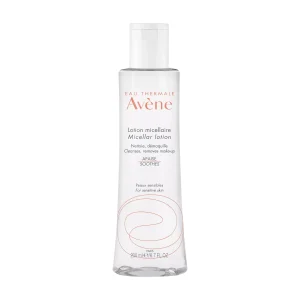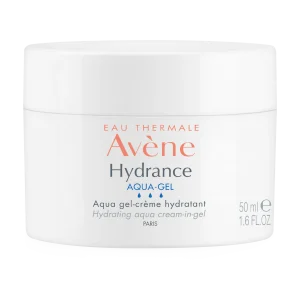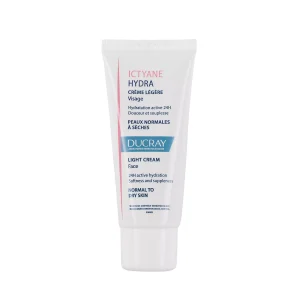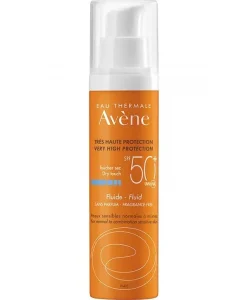
When it comes to health, mental and physical wellness are at the forefront. You exercise, eat right and keep your stress under control. But what are you doing for your skin? The skin care industry can be a little overwhelming, which is why we’re always here to help. We reached out to our dermatologist and cosmetologist, Dr. Hanadi Abu Youssif, to give us her advice. Read on to find out her top tips for keeping your skin strong and healthy.
What does healthy skin look like?
According to Dr. Hanadi Abu Youssif, healthy skin is soft, clear, plump, and radiant.
The texture of healthy skin should be smooth to the touch. If you have acne, whiteheads, blackheads, or small bumps, your skin is probably very congested.
Even skin color is also a positive sign that your skin is healthy and free of some common skin diseases. If you have an abundance of dark spots or redness, it may be a sign that something else is going on, such as eczema, psoriasis, or rosacea.
Healthy skin makes it look like you’re not wearing anything at all. It’s just there, sitting on your face. If you become aware of your skin because it itches, pulls, stings or burns, it’s a sign that something is wrong!
How to take care of the skin on your body and face?
- Drink water
According to Dr. Hanadi Abu Youssif, drinking water is extremely important for taking care of your skin.
Your body needs proper hydration. When it’s hydrated, it can more efficiently transport beneficial fluids and flush out unwanted toxins, which helps minimize inflammation and strengthen the skin’s moisture barrier.
Water is also essential for the production of structural proteins like collagen and elastin, which keep your skin strong, plump, and elastic. So, while eight glasses of water a day may not be the miracle cure you’re looking for, it does help you maintain a healthy, youthful complexion.
- Load up on antioxidants
Dr. Hanadi Abu Youssif recommends consuming antioxidants as a skin care tip for healthy skin.
In a nutshell: antioxidants neutralize and protect the body from free radicals. Free radicals are unstable and highly reactive molecules that come from a variety of sources, including air pollutants, chemicals, UV rays, and cigarette smoke. They trigger oxidative stress, which plays a role in premature skin aging.
Antioxidants are natural vitamins and minerals that fight free radicals and protect the skin from damage.
Here are some common antioxidants that are beneficial to your skin: Vitamin C, Vitamin A, Vitamin E, beta-carotene, lycopene, and lutein.
- Limit stress
Whether it’s through accelerating the aging process, increasing sensitivity, or causing breakouts, stress has a nasty habit of showing up on your skin. One way stress affects your skin is by triggering the release of cortisol.
High levels of cortisol accelerate the aging process by destroying collagen and elastin; it also causes your skin to produce more oil, which contributes to the development of acne.
- Exercise regularly
Regular exercise can do wonders for maintaining and improving the health of your skin. A sweaty workout increases your heart rate and blood flow, which is necessary to deliver oxygen and essential vitamins and nutrients to your cells.
Regular exercise can also counteract the aging process by reducing cortisol levels and activating the release of healing endorphins. All of this leads to healthier, happier skin.
- Get 8 hours of sleep
Dr. Hanadi Abu Youssif stresses that getting enough sleep is essential.
In fact, studies show that lack of sleep contributes to increased fine lines and wrinkles, uneven skin tone, and reduced skin elasticity. The more sleep you get, the healthier your skin looks. All repair processes occur when your body is in deep sleep. By getting enough sleep, you give your body time to perform the functions that keep your skin healthy.
- Eat a healthy diet
Just as getting enough sleep is important for your health, it is important to clean up your diet and avoid sugar and processed foods. Eating a lot of sugar, refined carbohydrates, processed and fried foods not only harms your overall health but also your skin.
Many experts agree that what you eat has a strong impact on the health of your skin, and research has shown that diet is important for certain skin conditions such as acne, skin cancer, and aging skin.
To get glowing skin, Dr. Hanadi Abu Youssif advises nourishing your body with fruits and vegetables.
- Always double cleanse
Wash your face gently. Gentle cleansing leaves your skin looking more beautiful. Apply a mild cleanser in circular motions with your fingertips. Finish by rinsing off the cleanser completely and gently patting your face dry with a clean towel.
Wash your face in the morning, before bed, and after sweating. Washing your face when you wake up will remove dirt and bacteria that have settled on your skin while you sleep. Before you go to bed, you want to remove makeup and dirt, such as smoke or grime, that may have settled on your skin.
The following cleanser removes pollutants, debris, and all traces of makeup. The alcohol-, oil- and soap-free formula is gentle on your skin, leaving it refreshed, moisturized, and comfortable.
Eau Thermale Avène Micellar Lotion
- Moisturize, moisturize, moisturize
When it comes to your skin, hydration is key. It’s important to keep your skin hydrated to keep it healthy. Even if you have oily skin, you need to keep it hydrated or it will produce more oil to compensate. Make sure to moisturize your skin twice a day and look for moisturizing ingredients like hyaluronic acid, glycerin, and ceramides.
We recommend the following 2 moisturizers that smooth, hydrate and promote a youthful appearance without fine lines or wrinkles. They strengthen the skin’s barrier while defending and detoxifying it from free radicals.
Eau Thermale Avene Hydrance Aqua-Gel
Ducray Ictyane Hydra Light Cream
- Limit sun exposure
One of the biggest threats to healthy skin is sun exposure. UV rays are the leading cause of melanoma. The best way to minimize the risk of developing melanoma is to protect yourself from UV exposure. Therefore, Dr. Hanadi Abu Youssif advises seeking shade and wearing sunscreen.
Sun exposure also contributes to premature aging of the skin. UVA rays destroy collagen, contribute to a lack of elasticity and tone and make the skin look thicker.
90% of your skin’s aging is under your control and directly related to sun exposure. So you should protect your skin by applying sunscreen with SPF 30 to your face and neck every day even on cloudy winter days! Your skin will thank you later.
Check out this fragrance-free sunscreen that is perfect for normal to combination sensitive skin. It offers optimal UVB-UVA protection.
Eau Thermale Avene Very High Protection Fluid SPF 50+
How to take care of your skin as a teenager?
Dr. Hanadi Abu Youssif advises checking your skin type whether it is oily, dry, or normal.
- Normal skin care
Normal skin has an even, smooth tone, soft texture, and no visible blemishes, red spots, or flaky patches. Pores are barely visible and the skin surface is neither oily nor dry. Normal skin has few imperfections due to a balanced amount of water and oil and good blood circulation.
If your skin is normal, wash your face two times a day with a mild cleanser to remove dirt and sweat. Then apply a moisturizer and sunscreen.
- Dry Skin Care
Dry skin is dull, rough, scaly, and itchy, with almost invisible pores. Dry skin is usually caused by an abnormal loss of cells from the outer layer of the skin. In normal situations, lubrication by the body’s natural oils helps prevent the skin from losing water.
How to take care of extremely dry skin? If you have dry skin, wash your face daily with a mild cleanser. This will prevent your skin from becoming drier. Dr. Hanadi Abu Youssif recommends using a thick moisturizer. She adds that it’s important not to scratch and to check your vitamin D levels.
Also limit very hot showers, high temperatures, and low humidity, which rob your skin of moisture. Always remember to wear sunscreen!
- Oily skin care
Oily skin is acne-prone skin with open pores, a shiny complexion, blackheads, and pimples. Since hormones influence oil production, anything that affects your hormone levels can affect your skin.
If you have pimples, never pop them or squeeze them, which can spread inflammation and make acne worse. Dr. Hanadi Abu Youssif recommends cleansing your acne-prone skin with an oil-free cleanser.
Also, use cosmetics and other skin care products that are “non-comedogenic,” meaning they don’t clog pores.
Last Updated on February 16, 2024













